We hate scaremongering when it comes to travel because we know that with a little common sense, traveling the world doesn’t have to be dangerous. Sharing our safety tips for travel with you will go a long way to ensuring you enjoy your next trip.
More often than not, it’s the places that are perceived as ‘dangerous’ that might just be the safest for travelers. Sometimes it’s the more touristy areas where you really need your travel safety tips in hand, to avoid petty criminals or worse.
Our safety tips have been collected from years of experience, and these will help you to hit the road with more peace of mind. Our tips can be as simple as keeping your valuables in the hotel safe or keeping up to date of political events in a country.
Make sure you have adequate insurance, you check government warnings but always remember to keep an open mind and don’t let fear stop you from having an adventure!
To help you to plan your trip abroad, here are our top safety tips for travel.
Safety Tips for Travel: Pre-Trip Tips
Table of Contents
1. Keep up to Date on Local News

You never know what can happen when you are abroad, and in today’s fast-changing and fast-paced world, anything can happen quickly, whether you are in Paris or deep in the deserts of Central Asia.
It’s good practice to stay informed when you are on the road, and one of our top travel safety tips is to keep up to date with the local news.
If it looks like there might be protests in the next city, maybe reconsider visiting, or if there has been an unusual number of incidents involving tourists, perhaps keep away for the time being.
We make a habit out of reading news for the destinations we are visiting a few days before we leave and then every morning at breakfast while in the destination.
We also stay up to date on news in our home country, just to ensure nothing major is going on that might affect our travels.
This is best done by downloading the apps onto your phone or tablet for easy access.
2. Watch the weather

As well as keeping up to date on local news, one of our best travel tips is to also keep up to date on the weather.
This is more important in some countries than others, and if it’s going to be a typhoon season in the Philippines, you might want to consider visiting at a different time of year.
But bad weather can affect your travel plans anywhere, and flooding could disrupt transport in England, or avalanches could be a danger in the Pyrenees in spring.
If it’s particularly hot you’ll want to keep hydrated, while if it’s going to be cold, you’ll want to make sure you take adequate cold-weather gear with you.
In regards to the weather, it is absolutely essential that you do your research on the best times to visit the place you want to travel to.
This will give you invaluable insight into what to expect and how to prepare for the time period you plan to travel there.
3. Check Government Websites

Another of our top safety tips for travel is to check government websites before you travel.
Many governments and embassies keep up to date profiles on countries around the world, and provide detailed rundowns on practical information such as entry requirements, and also on the political climate.
Websites such as the UK’s Foreign and Commonwealth Office also break down which regions within a country are safe to travel to. While Istanbul might be completely safe, traveling to the border between Turkey and Syria isn’t going to be quite so advisable.
Remember, of course, that these government websites are always going to be more over the top than the actual situation on the ground, and in some cases, government travel warnings can be politically motivated, rather than warning of any likely physical danger.
They are a good place to start though when you are planning your travels, and you are looking for more detailed safety tips for travel.
I can’t stress enough to just use this as heads up of sorts for your travels. We’ve traveled to many places on the warning list and had a wonderful time. The key is to be informed, not paranoid or afraid.
4. Buy Travel Insurance

One of the best tips for travel we can give is to take out adequate travel insurance. Travelers on a budget often overlook this as an unnecessary expense, but when it comes to keeping safe on the road, nothing beats a good insurance policy.
If you get hurt or injured, with a good insurance company behind you, you’ll be able to get instant access to the best health care in the country. If the political situation in a destination deteriorates then you’ll also be able to get out quickly.
There is a multitude of reasons to take out a solid insurance policy, but always read the small print, and check in detail for what you are actually covered for.
Some sporting activities might not be covered under basic policies, such as scuba diving to certain depths or trekking at high altitudes, so always make sure the policy you buy covers you for everything you might need.
No matter where we go, our travels are covered by Allianz Travel Insurance. We don’t travel without it nor should you. If you take more than one trip a year, it is also cost-effective to consider an annual insurance plan.
5. Leave a Copy of Your Travel Plans with Family
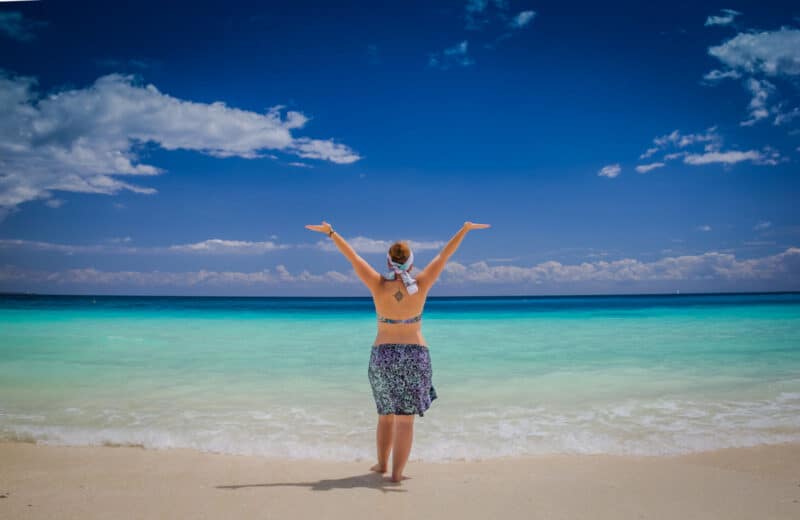
We literally never leave home without emailing copies of our flights, hotels and tour plans to a couple of members of our family. At the very least, your emergency contact should have copies of this information before you leave home.
In the rare chance that something does happen to you, it will go a long way for someone to have your complete travel records. It doesn’t have to be anything fancy. Create a spreadsheet in Google Docs and send the link.
Be sure to include your flight info for all flights, domestic and international including flight dates, times and numbers, all of your hotels and any tours that you have booked.
6. Check-in Regularly at Home
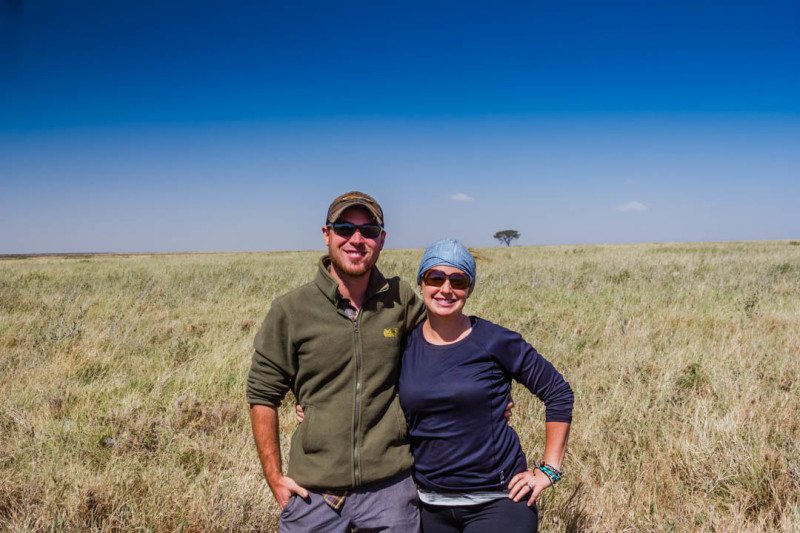
Now, you don’t have to paranoid about this but once you arrive at your destination, stay in touch back home.
Let someone know how things are going and if your plans are going according to the way they are booked. Also, notify them if there are any changes.
This will not only put your family’s worries at ease but also provide the necessary information in the rare event that something happens.
7. Email Yourself Copies of Important Docs
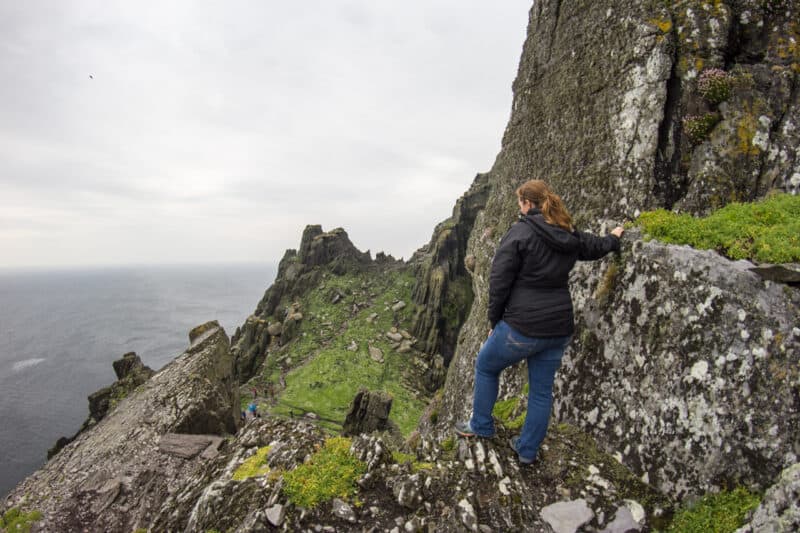
We each have a folder in our email inboxes labeled Travel Docs. This is where we save digital PDF copies of our important documents for our travels.
This includes our passport, driver’s license, medical records, vaccination records, TSA pre-check letter, Global Entry card, birth certificate, marriage certificate, travel insurance policy and any other docs we may need access to while traveling.
In the event that you lose your passport, find yourself in the middle of a political situation, are arrested or any number of other issues, it will be imperative that you have quick access to this information when overseas.
8. Be Medically Prepared
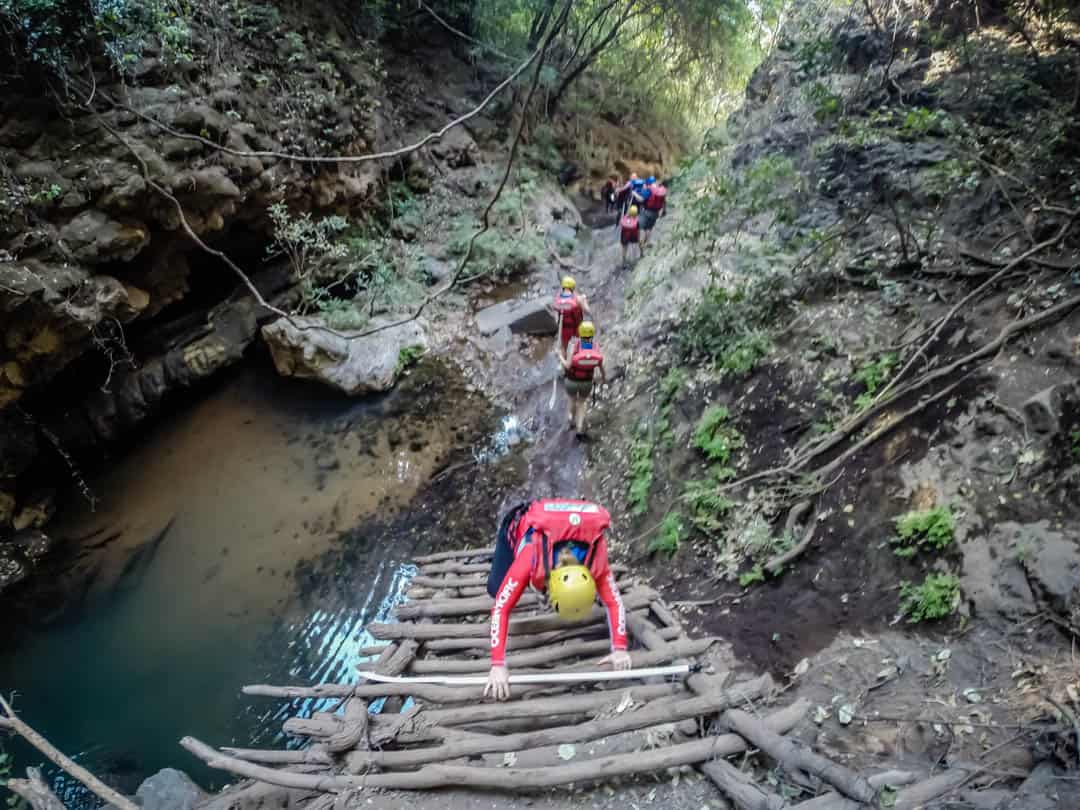
Depending on where you are traveling, you will also want to look into what vaccinations you need beforehand, and what potential diseases you can contract.
If you’re in malarial zones, then take precautions against this, while in some countries, you might need specific vaccinations, such as for Yellow Fever, to even gain entry.
Do not take vaccinations or prophylactics lightly. We highly advise that you make an appointment at an International Travel clinic near to you at least 6 months prior to your trip to discuss with a doctor what vaccinations you may need.
Read more Essential Travel Vaccinations Guide: What You Need & Why
9. Take a First Aid Kit

One of our favorite safety tips is to always carry a First Aid Kit with you are on the road. It doesn’t have to be large or extravagant, but it should give you the basic items you need to deal with minor injuries.
Take Tylenol or ibuprofen for headaches and pains, and antiseptic for cuts and grazes. In tropical climates small wounds can easily become infected quickly, so make sure you have the capacity to clean them quickly.
Make sure you have rehydration packets too, as becoming dehydrated while traveling is extremely common and often overlooked. We also never leave home without Neosporin and Hydrocortisone cream.
This is a great starter first aid kit if you need one: First Aid Only 299 Piece All-Purpose First Aid Kit, Soft Case.
Travel Safety Tips: While Traveling
10. Use the Hotel Safe or Hostel Lockers

It’s a traveler’s worst nightmare to return to the room and find that their valuables are missing.
Unfortunately, this can happen anywhere, be it a high-end hotel or a hostel, and if you are carrying electronics or spare cash, you’ll want to lock it away when you go out for the day.
If you’re staying in hostels, make sure that there are lockers in the dorm rooms, and check if you need to provide your own padlock too. In hotels, learn how to use the safe properly, and lock away your valuables inside.
Equally, you can consider padlocking the zippers on your bags when you travel, or you can even invest in a personal travel safe if you want to take things to the extreme!
Our favorite travel locks are: TSA Approved Luggage Travel Locks paired with a 7Penn Steel Cable Lock with 4-Digit Tumbler Combination 3ft Long Cord
11. Consider Using a Money Belt

Another great safety trip for travel when it comes to keeping your valuables secure is to utilize a money belt or similar accessories to keep things hidden away.
These aren’t always foolproof, as the most intrepid of criminals might always find a way to separate your money from you, but hiding your spare cash and passport can at least stop opportunistic criminals from relieving you of your things.
We’ve also seen people using neck pouches that can be hidden under your clothes. Some claim these are more comfortable and easier to access when you need to.
12. Don’t Flash Your Valuables

Equally, another of the common-sense safety tips for travel is to not flash your valuables.
Don’t advertise your expensive electronics, and in some places, you won’t even want to have your phone out to use as a map while you’re walking around.
Bali, in Indonesia, is notorious for drive-by muggings, and many a tourist on the back of a moped has been relieved of their phone while they are riding around directing.
When you’re on trains or buses, anywhere in the world, keep your valuables in the seat with you at all times.
I think it also goes a bit without saying, but don’t leave your electronics out unattended. Whether on the charger, on your bed or on a table. This just invites opportunity.
13. Leave Your Diamonds at Home

If you are considering wearing your diamonds or fancy jewelry while traveling abroad, there are a few things that should be taken into consideration before making your decision.
- LOSS: How would you feel if your ring was lost or stolen? Is it worth the risk?
- UNWANTED ATTENTION: Are you comfortable attracting attention to yourself? Flashy jewelry will turn heads in the quietest of places. Remember, some countries people make in a year equal to what you are wearing on your finger or neck.
- SECURITY: There is no guarantee that you will be able to find a safe, secure place to keep your diamonds when you do not want to wear them. Not all hotel safes are secure.
- INCONVENIENCE: Are you doing adventure activities or spending lots of time at the beach or in the water? You don’t want to miss out on things because you have nowhere safe to put your diamonds or jewelry.
- SAFETY: Wearing nice jewelry makes you an easy target for robbery and crime- even in the nicest of cities. The wealthier you look, the more at risk you are for incidents.
Our Advice? Leave the diamonds at home! The photo above shows both my wedding ring and the band that I wear when I travel.
I am not willing to risk those diamonds, not to mention they are vintage depression era stones, so I picked out a solid Tungsten band for traveling.
I picked that band up on OverStock for less than $30.
14. Be Careful of Pickpockets

When you’re traveling in crowded cities, public transport can be a haven for pickpockets, be it the London Underground or the metro in Barcelona.
Keep your valuables close, and be aware of your surroundings. If it’s peak time, you might want to avoid crowded public transport too and walk instead.
If you are lounging on a popular tourist beach, then be extra careful of your belongings, as one glance away and you could be relieved of your bag. On night buses and trains, be careful with your bag, as you could easily wake up only to discover it’s gone.
Never carry your wallet, cash or passport in your back pocket. EVER.
15. Wear Your Backpack/Camera/Purse on the Front in Crowded Areas

If you like to carry a purse or day bag with you when you’re out exploring, just know that doesn’t mean your contents are secure within it.
If you happen upon a crowded area, get on a packed bus or train, we advise that you immediately put your bag in front of you and keep it there.
This will limit access to your bag without your awareness. If you have a backpack, just turn it around and wear it on your chest. With purses, we strongly recommend you keep the strap on as a sling and then slide it to the front of your body.
If you like to carry your camera out when you travel, this is the part where I advise you to invest in a sling strap. Or at least a strap that is long enough to wear as a sling when you need to.
Someone is going to be way less likely to make an attempt on your camera if you have it more secure to your body.
Knowing where your bag/camera is and who is near it will go a long way to keeping your things protected from opportunistic theft.
16. Know the Scams

Scams designed to separate you from your money or items are prevalent all over the world. The people that operate them do so for a living and are very good at conning even the most conscious traveler out of something, so don’t think it cannot happen to you.
It will go a long way to do some research ahead of time and learn what the common scams are in the places that you are planning to visit. This will help you to spot these situations from a mile away.
These are some of the most common scams you will come across while traveling:
- Broken Taxi Meter: This will usually result in you being charged double, or more for your ride.
- Hotel worker: When you come across a local on the street that claims to work at your hotel. A technique used to get you to spend money at their shop.
- When a taxi driver says “That hotel/hostel does not exist anymore”: A lie to get you to book a room at their hotel
- Flattery: If you are suddenly approached and flattered to no end, move your purse to the front of you and walk away.
- Damaged Motorbike/Car Rental when returning: Always, ALWAYS, take photos of your car/bike when you pick it up and return it.
- Offering to take your photo: And then promptly runs off with your phone or camera
- Let me see the map on your phone: Then snatches the phone and runs
17. Use Ride-sharing Apps

Another of our top travel safety tips is to use ride-sharing apps where you can. Although this means having WiFi or investing in a local SIM card, using apps like Grab in Southeast Asia or Bolt in Europe, provide a new level of accountability.
As well as being easier to use if you don’t speak the local language, there’s no need for negotiation and no chance of being ripped off.
You can also track where you, where you are going, and importantly, all the drivers are verified and their number plates registered.
The top ride-sharing apps worldwide are:
- Uber.
- Lyft.
- Zimride.
- Trees For Cars.
- Wingz.
- Juno.
- Gett.
- Flywheel
Not all countries will offer the same ride-sharing services, so be sure to do your research in advance so you can have the right apps downloaded when you arrive.
To be honest, we rarely use local taxi services anymore and have relied solely on ride-sharing apps for almost 2 years now when we travel.
18. Dress & Behave Appropriately
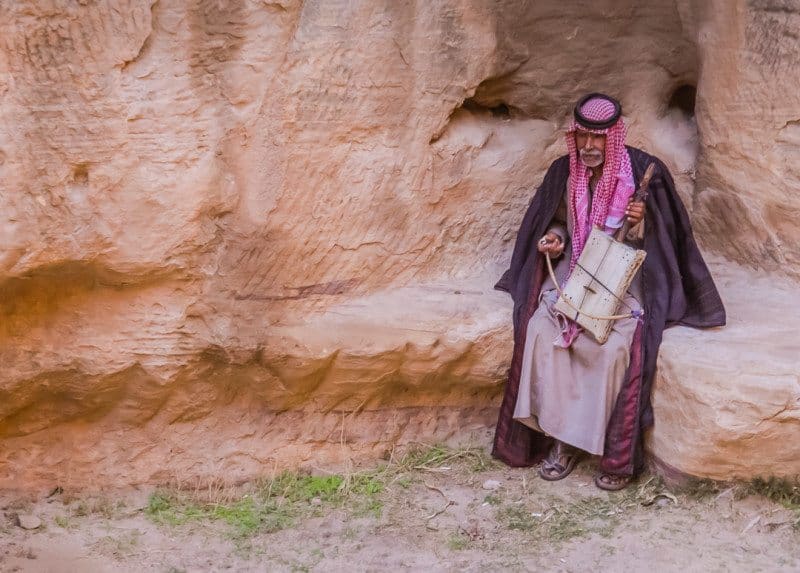
This is one of the most important safety tips for travel. Not all countries around the world will share the same dress codes and behavior that you do in your home country.
Do not, under any circumstances, travel to a place and think this is not important.
Whether you agree with things in that country, or not, you are choosing to travel there. If you want to be safe and respected by the local people, dress in a way that offers that. Be aware of cultural behavior and comply when you can.
Going to a foreign country and spouting frustratingly about things because they are not done that way at home, will get you nowhere. It also won’t buy you many fans. The key is to immerse in your new environment and do your best to blend in.
19. Wear a Helmet & Buckle Up
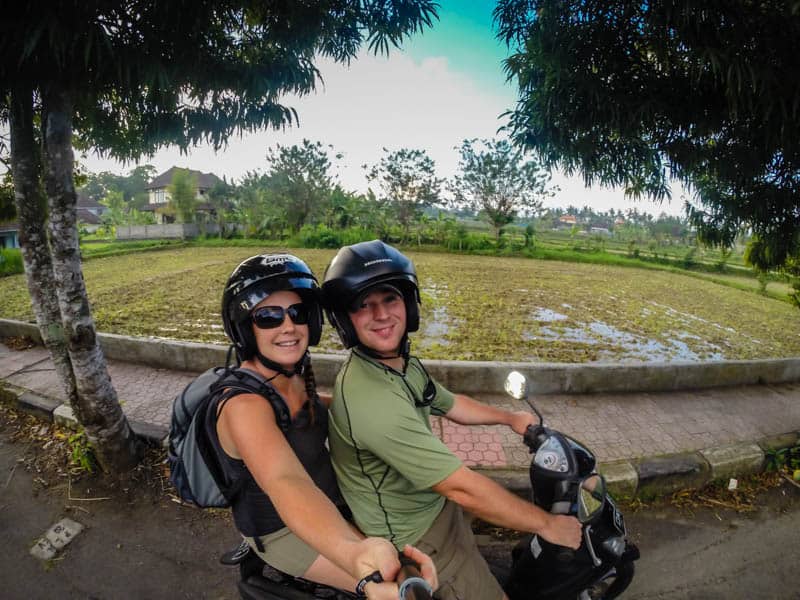
This is a simple one but it always blows my mind how few people actually do it. If you have the ability to buckle up in a vehicle when in transit, do it.
There are many countries in the world where not buckling up is illegal. Not to mention that you’re choosing to disregard your own safety.
Motor laws are very different in many foreign countries and with some cities being jam-packed with drivers, the risk of being in an accident is increased when you travel.
The same goes for wearing helmets. If you are getting on a motorbike or a horse, put on the helmet. There are literally no advantages to not doing it.
20. Food Hygiene is Important
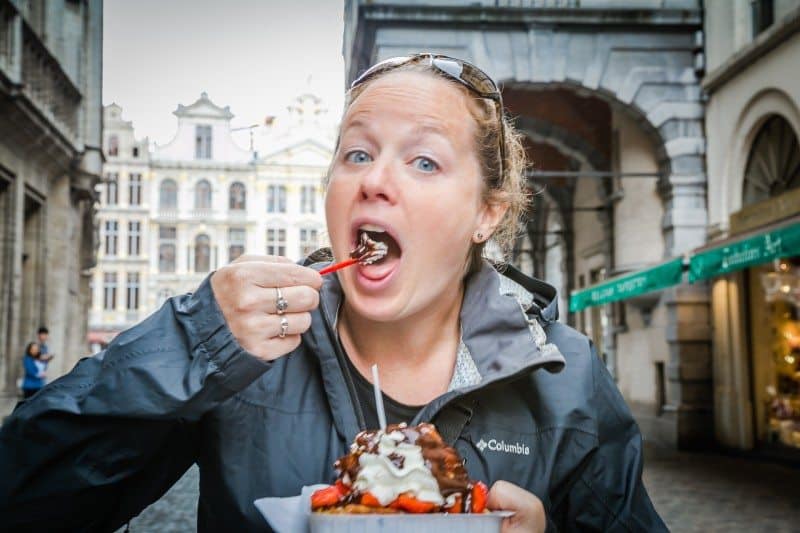
There’s nothing worse than getting ill on the road, and unfortunately, the vast majority of travelers – especially long term travelers – will inevitably end up getting sick.
This can be down to unfamiliar foods and diets, but most important of all is food hygiene. While you don’t want to not eat local food, just be careful.
Watch how it’s prepared, check reviews online if you are going to a restaurant, and be wary of anything that might have been left out for too long in the sun, or that was prepared in the morning and is still for sale late at night.
We’ve been sick while traveling more times than we care to admit, ranging from mild stomach upset to full-on raging sick.
All from ill-prepared food. At this stage, it is kind of an inevitable thing with travel. so be mindful, but know it could happen.
Be sure have these items in your first aid kit, just in case you need them:
- Nuun Sport: Electrolyte-Rich Sports Drink Tablets (will literally turn off diarrhea)
- Emergen C Tablets
21. If It Doesn’t Feel Right, Don’t Do It

This safety tip for travel is simple. If it doesn’t feel right, don’t do it. More often than not it can be very clear if something seems sketchy, and if the taxi ride seems too good to be true or if the city seems dangerous after dark, then follow your gut instincts.
This also goes for animal welfare. If you see things that don’t look right, do not support it.
You don’t want to feel uncomfortable, so make a wise choice and reevaluate, rather than regretting things later on or getting into danger.
22. Minimize Your Alcohol Consumption
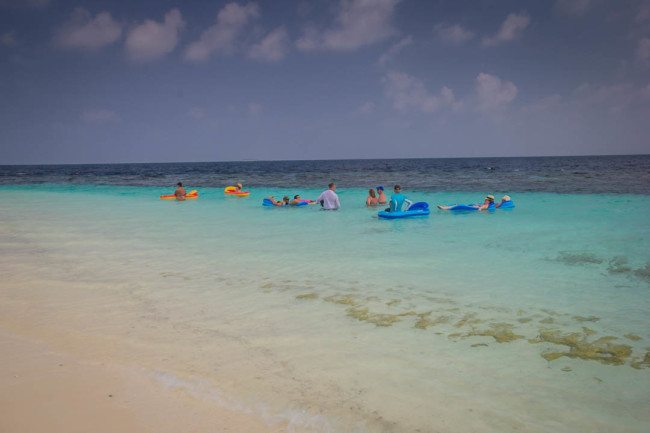
We know it can be exciting to finally be on vacation and exploring a new place. While it is perfectly acceptable to consume alcohol while traveling, it is very important that you refrain from getting trashed.
Drinking too much, especially when you’re in an unfamiliar place, can lead to some dangerous situations. Have a couple at dinner or with new friends at the bar, but we highly recommend avoiding getting drunk.
We’ve seen some pretty scary stuff in our travels, with people being dangerously drunk and getting taken advantage of. Not drinking responsibly can be a great way to separate yourself from your money, dignity, and safety.
23. Keep Your Guard Up with Strangers
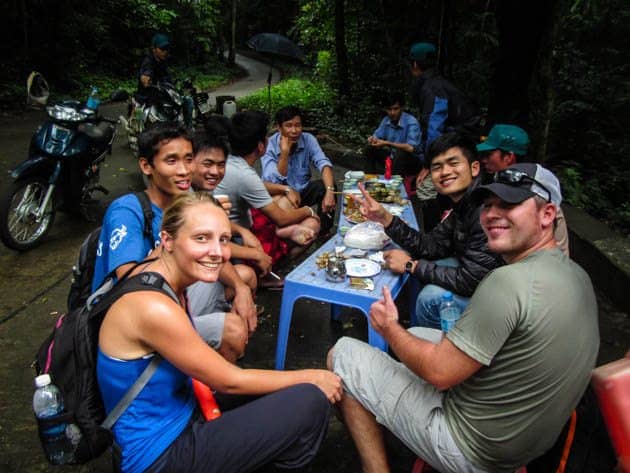
This one is a bit of a double-edged sword, but in our experience absolutely critical when you are traveling in a new place.
In your travels, you’re likely to encounter many friendly people that are willing to give you company or help you out.
While it is perfectly fine to chat with people and make friends, make sure you are not giving away too much trust, too fast. 90% of the people that you meet traveling are harmless and genuinely want to get to know you. The rest is what you have to worry about.
Consider a person’s motives, ask questions and protect your own interests if something doesn’t feel right. Don’t be afraid to say ‘no thanks’ and walk away.
Certainly, don’t give away sensitive information to new people you meet. This includes where you are staying.
24. Explore with Purpose
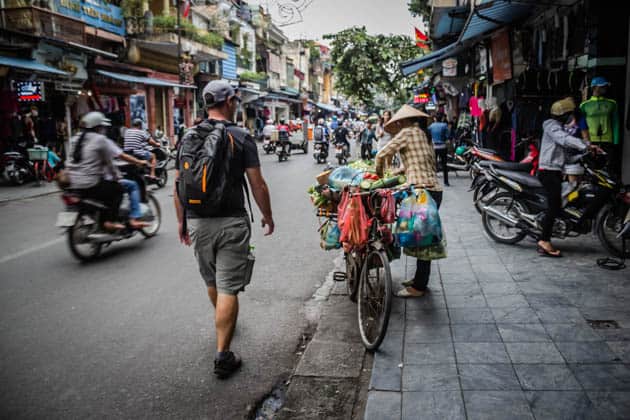
This is one of the best safety tips for travel we can give you. When you are out on the streets, walk around with a sense of purpose.
Even if you are lost, you should still try to walk around as if you know where you are and where you are going. This makes you less of a target.
If you need to check your map or phone, pause to look at something or sit down at a cafe for a coffee to regroup. This is better than searching on the sidewalk and appearing lost to passerby people.
25. Have a Cash Stash
This is something we started doing when we started long term travel. To ensure we always had something, in the event that we were robbed, we began stashing money in random places within our luggage and items.
This ensured that we would have something to fall back on if our wallet or carry bag was stolen.
Luckily, we never had to utilize the cash stash (you get hyper-vigilant when you travel full time!) but it was comforting to know we had it.
More on Travel Planning:
- How to Plan A Trip: Step by Step Guide
- How to Save Money for Travel: A Step by Step Plan
- 10 Killer Tips on How to Find Cheap Flights
- 11 Easy Tips on How to Find Cheap Accommodation
- The Best Travel Wallets for Your Important Essentials
- 7 Exotic Places to Travel Without a Passport
- 21 Amazing Travel Adventures to Inspire Your Next Trip
- Travel Insurance for Europe Vacation: Do You Need It?
- How to Choose the Best Travel Insurance Policy
- 10 Reasons to Have Annual Travel Insurance
Did you like this story? Share it!
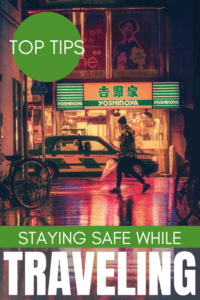


What a fantastically thought out list!
This is so so helpful and some amazing tips here, even as a season traveller it’s important to remind yourself!
Thanks very much 🙂
Precaution is better than cure. Thanks for sharing these safety tips which are very important for everyone.